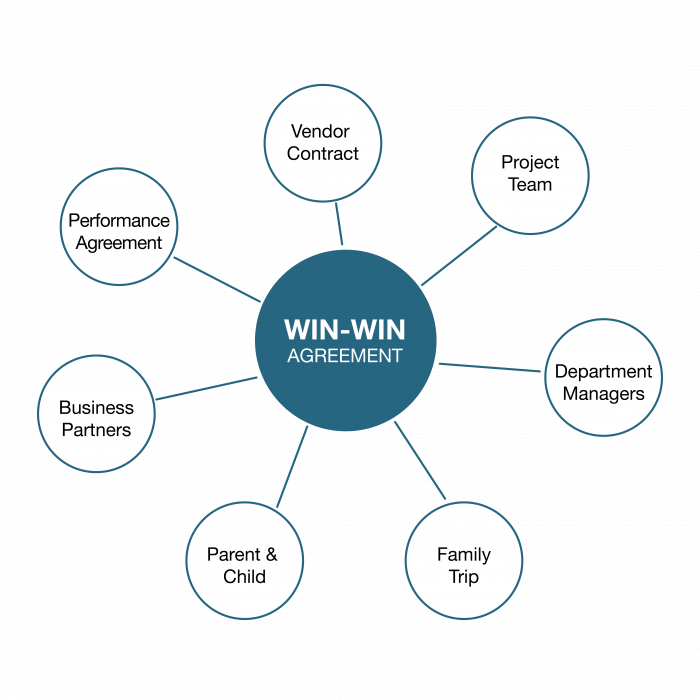The Habit of Mutual Benefit
Think Win-Win isn’t about being nice, nor is it a quick-fix technique. It is a character-based code for human interaction and collaboration.
Most of us learn to base our self-worth on comparisons and competition. We think about succeeding in terms of someone else failing—if I win, you lose; or if you win, I lose. Life becomes a zero-sum game. There is only so much pie to go around, and if you get a big piece, there is less for me; it’s not fair, and I’m going to make sure you don’t get anymore. We all play the game, but how much fun is it really?
Win-win sees life as a cooperative arena, not a competitive one. Win-win is a frame of mind and heart that constantly seeks mutual benefit in all human interactions. Win-win means agreements or solutions are mutually beneficial and satisfying. We both get to eat the pie, and it tastes pretty darn good!
To go for win-win, you not only have to be empathic, but you also have to be confident. You not only have to be considerate and sensitive, but you also have to be brave. That balance between courage and consideration is the essence of real maturity and is fundamental to win-win.
Why Win-Win?
Many people think in terms of either/or: either you’re nice or you’re tough. Win-win requires that you be both. It is a balancing act between courage and consideration.
There are three vital character traits that are essential to this paradigm:
- Integrity: sticking with your true feelings, values, and commitments.
- Maturity: expressing your ideas and feelings with courage and consideration for the ideas and feelings of others.
- Abundance Mentality: believing there is plenty for everyone.


“In the long run, if it isn’t a win for both of us, we both lose. That’s why win-win is the only real alternative in interdependent realities.”
Green and Clean
Free Guide
Remote Work: 8 Tips to Boost Team Engagement, Collaboration, and Morale
Learn how to keep every team member engaged — from anywhere.
Register for an Event
Increasing the Social-Emotional Intelligence of Your Workforce
Learn how the powerful lessons of personal change from The 7 Habits can help transform the behaviors of your workforce.
The 7 Habits of Highly Effective People
Focus and act on what you can control and influence instead of what you can’t.
Define clear measures of success and a plan to achieve them.
Prioritize and achieve your most important goals instead of constantly reacting to urgencies.
Collaborate more effectively by building high-trust relationships.
Influence others by developing a deep understanding of their needs and perspectives.
Develop innovative solutions that leverage diversity and satisfy all key stakeholders.
Increase motivation, energy, and work/life balance by making time for renewing activities.











